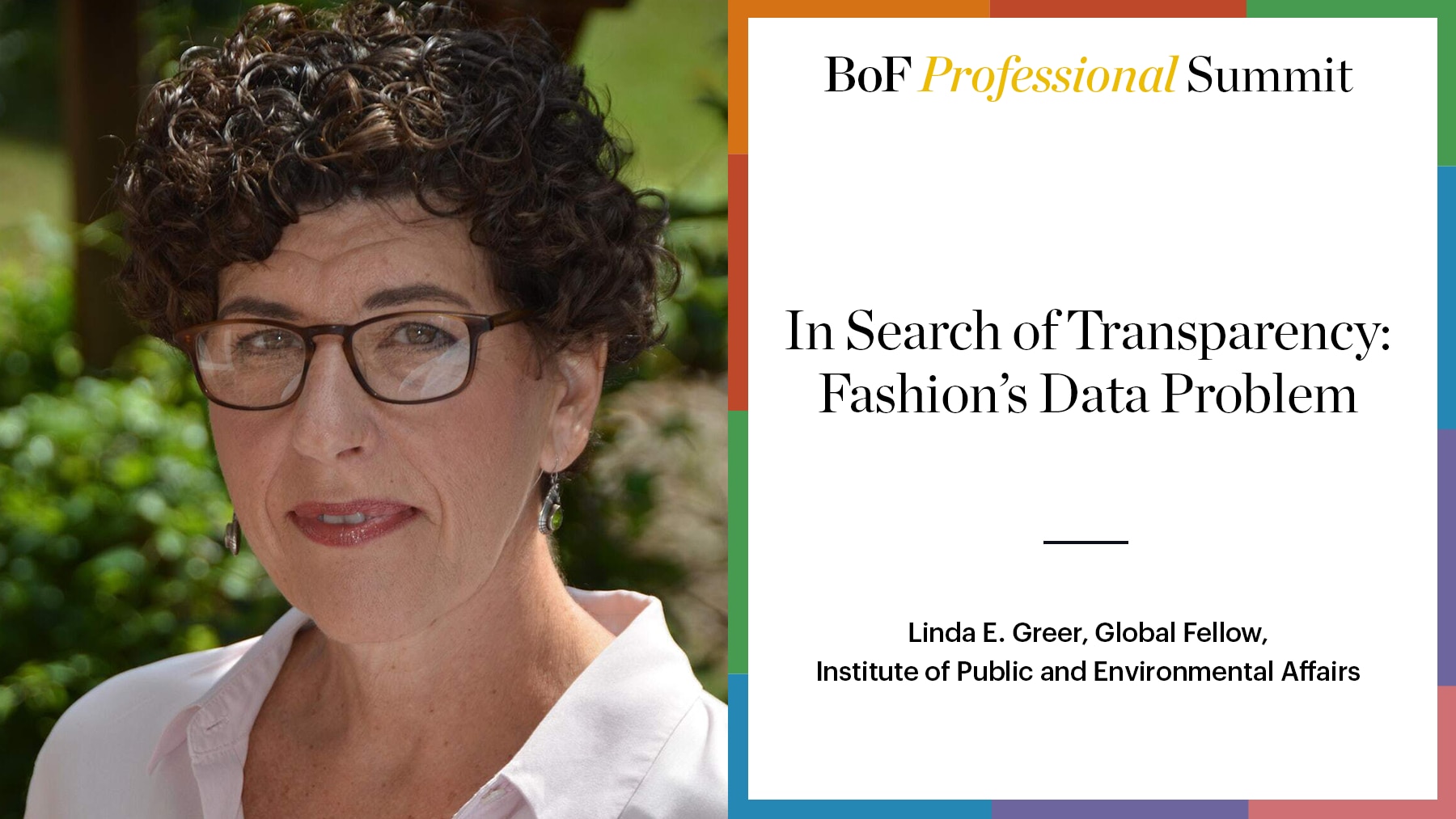
To subscribe to the BoF Podcast, please follow this link.
One of the biggest challenges facing the fashion industry in its efforts to become more responsible and sustainable is bad data. While companies are under increased pressure to provide more information about working conditions and greenhouse gas emissions, the data they share is limited and often of dubious quality. At the BoF Professional Summit: Closing Fashion’s Sustainability Gap, Linda E. Greer, a global fellow at the Institute of Public and Environmental Affairs and a member of BoF’s Sustainability Council, joined BoF London editor Sarah Kent for a discussion on how fashion’s bad data is affecting its sustainability efforts.
- Companies often lack oversight into their own supply chains, preventing labour conditions and environmental impact from being properly recorded or addressed. Full supply chain transparency is critical for companies to trace and collect data.
- This opacity also allows companies to avoid accountability for working conditions and the environmental footprint of their sprawling global supply chains. “There is a level at which the lack of transparency is working for these companies, because it allows them to perpetuate the status quo,” said Greer.
- Stricter regulation would force companies to do more, but in its absence Greer recommends companies start by looking at emissions from their manufacturing base. “If you’re not doing that, you’re just not in the game,” said Greer.
Related Articles:
Measuring Fashion’s Sustainability Gap
Scaling Up or Selling Out: How Can Sustainable Labels Credibly Collaborate with Big Brands?
Devising a New Social Contract for Fashion’s Garment Workers
Join BoF Professional for the analysis and advice you need. Get 30 days for just $1 or explore group subscriptions for your business.


